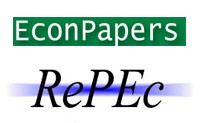
Lupine Publishers Group
Lupine Publishers
Menu
ISSN: 2637-4668
Opinion(ISSN: 2637-4668) 
Ferrocement - A Versatile Light Weight Construction Material Volume 1 - Issue 3
Mumtaz A Quraishi1* and Sabih Akhtar2- 1Center of Research Excellence in Corrosion, KSA
- 2Department of Civil Engineering, KSA
Received: February 03, 2018; Published: February 13, 2018
*Corresponding author: Mumtaz A Quraish, Center of Research Excellence in Corrosion, KFUPM, Dhahran, KSA
DOI: 10.32474/TCEIA.2018.01.000112
Abstract
Socio-economic factors have always influenced construction practices. Man has invariably attempted to compose materials that are not only cheap and easy to employ, but also strong and durable. In the last century cementitious composite has been the choice of the constructions industry across the globe owing to its low cost, easy to mould into typical shapes and high durability. Reinforced cement concrete, fibre reinforced concrete, polymer concrete etc. are to name a few. One such material is ferrocement having light weight and extremely high load resisting capacity. This paper provides a hands-on insight into this emerging construction material.
Introduction
Ferrocement is a composite material in which rich cement- sand mortar (or micro-concrete) is reinforced with layers of continuous and small diameter steel wire meshes. The basic principle in its formulation is that it can undergo large strains in the neighbourhood of reinforcement and the magnitude of strains depends on the distribution and subdivision of meshes in concrete. The uniform distribution and high surface area to volume ratio (specific surface) of the reinforcement results in a good crack arrest mechanism. Ferrocement Model Code (2001) defines ferrocement as a type of reinforced concrete commonly constructed of hydraulic cement mortar reinforced with closely spaced layers of relatively small wire diameter mesh. The mesh may be made of metallic or other suitable materials. The fineness of the mortar matrix and its composition should be compatible with the opening and tightness of the reinforcing system it is meant to encapsulate. The matrix may contain discontinuous fibers [1].
Use of ferrocement
Ferrocement is used in thin walled structures where strength and rigidity are developed through form or shape. It can be tailored with directional strength properties and has the distinct advantage of being moldable and of one piece construction. Other major advantages are its low cost and non-flammability. The confidence in the material has been building up with time resulting in its wider applications. The application areas of ferrocement are both terrestrial and marine. It has been used in housing (particularly roofing elements), water tanks, pipes, water boats, barges, vessels, reservoirs, swimming pools, farming works, silos and warehouses [2-3].
Constituent materials
The basic constituent materials required for ferrocement are cement, sand, water and wire meshes. The cement should normally be of ordinary Portland type. The cement-sand ratio for the mortar varies from 1:1.5 to 1:2.5 and water-cement ratio, from 0.35 to 0.50 by weight. Wire meshes of different types, such as hexagonal (chicken wire mesh), woven, welded, expanded and Watson meshes, have been used. The wire meshes are generally made up of 0.5 to 1.5 mm diameter wires and spaced 5 to 25 mm apart.
Historical Development of Ferrocement
Increased scientific approach to studying and predicting ferrocement properties started in the late 1960's and was encouraged by a panel of the.com National Academy of Sciences in 1973. This led to the formation of the American Concrete Institute's Committee on Ferrocement, in 1975, and shortly thereafter, in 1976, the establishment of the International Ferrocement Information Center (IFIC) in Bangkok, Thailand. Publication of the Journal of Ferrocement was then consolidated at IFIC.A RILEM scientific committee on ferrocement was later formed in 1979. Progress accelerated during the 1980's through fundamental research, publications, symposia, short courses and applications. The International Ferrocement Society (IFS) was founded in 1991 with the objective to foster development, disseminate knowledge, and encourage practical applications of ferrocement [4].
The most urgent need of this new professional society was to develop a building code for ferrocement. The first Ferrocement Model Code was published in 2001 essentially setting the stage for guided expansion, imagineering and developments [5-6]. Since then, there has been an increased activity with ferrocement construction throughout the world particularly in Canada, U.S.A., Australia, New Zealand, U.K., Mexico, erstwhile Soviet Union, Poland, Cuba, Hungary, China, Thailand, India, Indonesia and Israel A large number of experimental and analytical studies have been carried out that deal with ferrocement structural elements, having various shapes and sizes, subjected to different loading conditions. These studies have established the material worthiness for use in diversified applications and prove it to be a strong alternative to conventional construction material.
Improvement in strength of ferrocement has also been suggested through the use of different types of wire meshes and modified mortar. Almost all the aspects involving tension, compression, flexure, shear, torsion, fatigue, impact and dynamic loading has been widely investigated. These research outcomes have proved the worthiness of this material [7-10]. Success of ferrocement, as with other materials, depends largely upon its durability. Few studies exploring the durability aspects of the ferrocement have also been reported [11-14]. Although it has been found to be durable alternative construction material but its long term performance especially in aggressive environment is still under explored.
Conclusion
Ferrocement has proven itself as an extremely versatile light weight low cost housing material having excellent performance under varied loading conditions. For its acceptability as alternative construction material, durability aspects need to be thoroughly explored. Methods that can improve the life of ferrocement composite in every type of exposure condition are still awaited.
References
- Ferrocement Model Code, by IFS Committee 10-01 (2001) International Ferrocement Society, Asian Institute of Technology, Bangkok, Thailand.
- Paul BK, Pama RP (1978) Ferrocement, International Ferrocement Information Centre, Publication No 149, AIT, Bangkok, Thailand.
- Shah SP, Balaguru PN (1984) Ferrocement Concrete Design and Technology 2nd Edn, Swamy RN, Surrey University Press, London, UK.
- Kaushik SK (1994) Research and Development on Ferrocement. Asia Pacific Scenario, Proceedings Second Asia Pacific Symposium on Ferrocement, Roorkee, India.
- Naaman AE (2006) Ferrocement and Thin Reinforced Cement Composites: Four Decades of Progress, Proceedings 8th International Symposium and Workshop on Ferrocement and Thin Reinforced Cement Composites. Bangkok, Thailand, February 6(8): 3-21.
- Nervi PL (1956) Structures FW Dodge Co, New York, USA.
- Hermosura NK, Austriaco LR (1994) Research on Ferrocement Housing- Global Perspective. Journal of Ferrocement 24(1): 1-6.
- Ramli M, Wahab I (1994) Ferrocement in Affordable Housing Construction: The Malaysian Experience. Journal of Ferrocement 24(1): 17-21.
- Arif M, Akhtar, S, Masood A, Basit S, Garg M, et al. (2001) Flexural Behaviour of Fly ash Mortar Ferrocement Panels for Low Cost Housing. Journal of Ferrocement 31(2): 125-135.
- Kaushik SK, Pankaj, Akhtar S, Arif M (2002) Experimental Investigations on Ferrocement Plates using Super plasticized Fly Ash Mortar. Journal of Ferrocement 32(2): 97-107.
- Alexander D (1989) Factors Influencing the Durability of Ferrocement. Journal of Ferrocement 19(3): 215-222.
- 12. Masood A, Arif M, Akhtar S, Moyeen A (2003) Performance of Ferrocement Panels in Different Environments. Cement and Concrete Research 33: 555-562.
- Akhtar S, Quraishi MA, Arif M (2009) Use of Chemical Corrosion Inhibitors for Protection of Metallic Fibre Reinforcement in Ferrocement Composites. Arabian Journal for Science and Engineering 34(2C): 107113.
- Akhtar S, Md Daniyal, Quraishi MA (2015) A Review of Corrosion Control Methods in Ferrocement. Journal of Steel Structures and Construction 1(1).

Top Editors
-

Mark E Smith
Bio chemistry
University of Texas Medical Branch, USA -

Lawrence A Presley
Department of Criminal Justice
Liberty University, USA -

Thomas W Miller
Department of Psychiatry
University of Kentucky, USA -

Gjumrakch Aliev
Department of Medicine
Gally International Biomedical Research & Consulting LLC, USA -

Christopher Bryant
Department of Urbanisation and Agricultural
Montreal university, USA -

Robert William Frare
Oral & Maxillofacial Pathology
New York University, USA -

Rudolph Modesto Navari
Gastroenterology and Hepatology
University of Alabama, UK -

Andrew Hague
Department of Medicine
Universities of Bradford, UK -

George Gregory Buttigieg
Maltese College of Obstetrics and Gynaecology, Europe -

Chen-Hsiung Yeh
Oncology
Circulogene Theranostics, England -
.png)
Emilio Bucio-Carrillo
Radiation Chemistry
National University of Mexico, USA -
.jpg)
Casey J Grenier
Analytical Chemistry
Wentworth Institute of Technology, USA -
Hany Atalah
Minimally Invasive Surgery
Mercer University school of Medicine, USA -

Abu-Hussein Muhamad
Pediatric Dentistry
University of Athens , Greece

The annual scholar awards from Lupine Publishers honor a selected number Read More...










